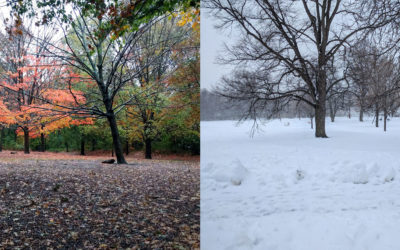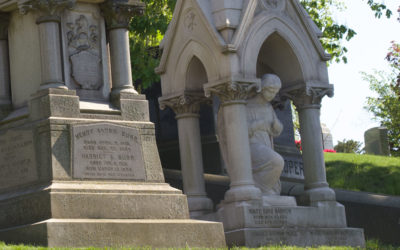TEACH for Your LIFE: Stories of Teaching & Learning
TEACH for Your LIFE: Stories of Teaching & Learning
By Robert DiYanni, New York University
Preface
If we have been lucky, each of us has had one teacher in our lives who has made all the difference for us. I have been fortunate to have had a few. And with half a century of teaching experience—grades 8 through graduate school—I have been privileged, on occasion, to have been that teacher for some of my own students. I have seen the spark of joy light up students’ minds and brighten their lives. Seeing those sparks illumine students’ minds and lives has inspired and impelled my teaching life.
Some readers may wonder about the value of what teachers do. Teachers change lives every day. They can alter the trajectory of their students’ lives, and often do.
Some teachers seem born to the art and craft of teaching; most learn the ropes as they go. They learn by going where they have to go; they learn by doing what they need to do. The key to successful teaching is a desire to impart knowledge, advance learning, and inspire students to learn in ways that enhance their lives.
This book is for teachers and aspiring teachers who yearn to make a difference in the lives of others. It’s for anyone who believes that teaching matters, that learning matters, and that inspiring others to learn is a worthy calling.
Teaching is much more than a job or profession. Teaching is a vocation, a summons to the mysteries and pleasures of learning. In Teaching for Your Life: Stories of Teaching & Learning I explore teaching’s rewards and challenges, its prospects and hindrances.
Blending manual, manifesto, and memoir, the book combines exposition with narrative, description with admonition and exhortation. I anchor my educational experience in research on successful teaching practices, which inform the book unobtrusively. And I describe the many challenges and pleasures the teaching life affords.
I explore the implications of these challenges and pleasures through stories of obstacles encountered, arguments negotiated, mistakes made, tears shed. I share stories of the unexpected, the shocking, the disruptive, the stupid—stories of elation and frustration, of dedication and betrayal, anguish and anger, hope and possibility. In the process, I emphasize how teaching and learning are symbiotic, and why they are meaningful only in the context of community.
Teach for Your Life transcends my own teaching life; the stories I tell are not my stories alone. And while the book embodies my teaching life, it’s equally a book about the teaching life, about teaching as a way of life.
Whether you are a parent, manager, entrepreneur, coach; a writer, a teacher, or other professional educator—however you make your living in the multiple roles you assume—you will find in Teaching for Your Life moments of exhilaration, occasional epiphanies, and at least a few ideas of interest and value. You will find reasons to appreciate what teachers contribute to the lives of their students, what they learn from them, and why students and their teachers, at their best, rightfully cherish the precious gifts they impart to each other.
Now more than ever, students’ lives matter; teachers’ lives matter; teaching and learning matter. The life of the mind and the heart matter, desperately, to us all today and tomorrow and beyond.
TABLE OF CONTENTS
I never teach my pupils; I only attempt to provide the conditions in which they can learn. —Albert Einstein
Prologue Early Student Memories
PART ONE CLASSROOM PRACTICES
The whole art of teaching is only the art of awakening the natural curiosity of young minds for the purpose of satisfying it afterwards. —Anatole France
Chapter 1 Learning with High School Students
Chapter 2 Joining Educational Communities
Chapter 3 Settling into the Teaching Life
Chapter 4 Teaching in Cambridge and Taiwan
Chapter 5 Teaching Across Programs
PART TWO TOWARD MASTERY
The good teacher explains. The superior teacher demonstrates. The great teacher inspires. —William Arthur Ward
Chapter 6 Varied Teaching Venues
Chapter 7 Ways of Teaching
Chapter 8 Teaching Literature
Chapter 9 Teaching and Textbooks
Chapter 10 An Approach to Teaching
Epilogue
Appendix A—My Life in School
Appendix B—How to Become an Effective Teacher
References and Suggested Readings
Acknowledgments and Recognitions
Detailed Contents for The Teaching Life—Stories of Teaching and Learning
Prologue Early Student Memories
PART ONE CLASSROOM PRACTICES
Chapter 1 Learning with High School Students
Baptism by Fire / Classroom Novice / Meetings with the Principal /
Back in the Classroom / What is a Teacher? Why Teach?
Chapter 2 Joining Educational Communities
Queens College Apprenticeship / Success and Failures / Masterful Mentors /
Joining the Teaching Community / Major Mistakes / Becoming a Professional /
Three Extraordinary Colleagues / Visiting Scholars / Teaching Writing about
Music / Teaching and Feelings
Chapter 3 Settling into the Teaching Life
Teaching at Pace University / Teaching American Literature / Teaching
Exploratory Writing / Teaching Adults / Teaching Music Appreciation /
Teaching for IBM / Teaching Through Field Trips / Teaching with Emotion
Chapter 4 Teaching in Cambridge and Taiwan
A Different Writing Pedagogy / Some Harvard Teachers / Some Harvard
Students / Fear of Failure / Minorities and Majorities / Students in Charge /
Teaching Poetry in Taiwan
Chapter 5 Teaching Across Programs
Seizing Opportunities / Teaching Critical Thinking / Teaching Cultural Foundations /
Teaching Essay Writing / Teaching in the NYU Business School / Teaching Online / Teaching Teachers
PART TWO TOWARD MASTERY
Chapter 6 Varied Teaching Venues
Adjunct Teaching / Memorable Adjunct Teaching Experiences / Suburban
School Scenarios / Teaching in Churches and Libraries / AP Institutes and
Conferences Abroad
Chapter 7 Ways of Teaching
Interdisciplinary Teaching / Teaching Imaginative Thinking /
Imagination, Creativity, Innovation / Metaphors of Teaching /
Mentoring and More
Chapter 8 Teaching Literature
The Pleasures of Fiction / From Story to Poem / A Teaching Framework /
Drama and Imaginative Thinking / Drama as Theater / The Pleasure of Essays /
What Good is Literature?
Chapter 9 Teaching and Textbooks
Textbook Conflicts / The Problem of Time / A Swerve to High School
Textbooks / Obstacles and Opportunities / Modern American Poets: Their
Voices and Visions / The Scribner Handbook for Writers / Prentice-Hall
Humanities Texts / Powers of Two / Great Essays
Chapter 10 An Approach to Teaching
A Teaching Credo / Teaching as a Vocation / Influential Teachers /
Creating a Teaching Persona / Building Community / The Dynamics
of Teaching and Learning / Master Teachers
Epilogue
Appendix A—My Life in School
Appendix B—How to Become an Effective Teacher
References and Suggested Readings
Acknowledgments and Recognitions
Current Writing Projects
My current writing projects are linked below: (1) a book on reading literature (Improvisations); (2) two books on getting smarter (fast and across the board); (3) a pair of memoirs about my teaching life (50 years+) and my life with music (even more years!). Also included is information about my biggest work-in-progress: an encyclopedic summa pedagogica, with the current title: Provocative Pairs—Learning with the World’s Masters (152 chapters—and counting—each chapter a dozen double-spaced pages, with most chapters devoted to a pair of great masters past and present).
For each of these works in the making, I have provided a table of contents and preface. A couple of them also include a sample chapter. An additional book I have in the works is Poems to Live By, for which I’ve included about a third of what I’ve written so far—also with a brief TOC and prefatory note.
Mastery—Learning with the World’s Best Masters
SMARTER—How Getting Smarter Can Enrich Your Life
Think for Your Life
How Critical and Creative Thinking Can Improve Your Life
Teach for Your Life
Stories of Teaching & Learning
Double Life: The Teaching Life & Living with Music
Poems to Live By
Essays: Reflections and Ruminations

Robert DiYanni
Author ⪢ | Professor ⪢ | Consultant ⪢
Robert DiYanni is a professor of humanities at New York University, having served as an instructional consultant at the NYU Center for the Advancement of Teaching and Center for Faculty Advancement. For these centers he conducted workshops and seminars on all aspects of pedagogy, consulted with faculty about teaching concerns, visited and observed classes, and provided a wide range of pedagogical consultative services. Professor DiYanni serves on the faculties of the School of Professional Studies and the Stern School of Business at NYU. He earned his undergraduate degree in English from Rutgers University, attended a Master of Arts in Teaching program at Johns Hopkins University, and received a Ph.D. in English Language and Literature from the City University of New York Graduate Center.
In addition to his work at NYU, Dr. DiYanni has taught at City University of New York, at Pace University, and as a Visiting Professor at Tsing Hua University in Taiwan and at Harvard University. As a high school teacher for four years and a college professor for more than four decades, Professor DiYanni has taught students from eighth grade through doctoral candidates. Most of his teaching, however, has been with college and university undergraduates. His numerous workshops, offered in more than twenty countries, have been attended by secondary school teachers and administrators, as well as by undergraduate college and university faculty and administrators.
Dr. DiYanni has written and edited numerous textbooks, among them, Literature: An Introduction; The Scribner Handbook for Writers (with Pat C. Hoy II); Arts and Culture: An Introduction to the Humanities, (with Janetta Rebold Benton), the basis for a series of lectures given at the Metropolitan Museum of Art; and Modern American Poets: Their Voices and Visions, which served as a companion text for the PBS television series Voices and Vision, which aired in the late 1980s.
You may also want to read these…
Comparing Poems
Comparison is one of the best ways of teaching anything; it is especially useful for reading and teaching…
The Widow of Ephesus
Once there was a certain married woman in the city of Ephesus, whose faithfulness to her husband…
Villanelle Variations
“I learn by going where I have to go,” writes Theodore Roethke in “The Waking.” “The art of losing…


